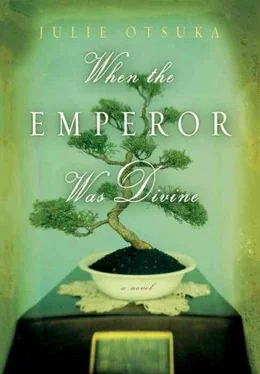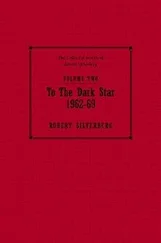IN THE MIDDLE of the night the boy crawled into her bed and asked her, over and over again, “What is that funny noise? What is that funny noise ?”
The woman smoothed down his black hair. “Rain,” she whispered.
The boy understood. He fell asleep at once. The thunder had come and gone and except for the sound of the rain the house was now quiet. The woman lay awake worrying about the leaky roof. Her husband had meant to fix it but he never had. She got up and placed a tin bucket on the floor to catch the water. She felt better after she did that. She climbed back into bed beside the boy and pulled the blanket up around his shoulders. He was chewing in his sleep and she wondered if he was hungry. Then she remembered the candy in her purse. The caramels. She had forgotten about the caramels. What would Joe Lundy say? He would tell her she was wearing a nice red dress. He would tell her not to worry about it. She knew that. She closed her eyes. She would give the caramels to the children in the morning. That was what she would do. She whispered a silent prayer to herself and drifted off to sleep as the water dripped steadily into the bucket. The boy shrugged off the blanket and rolled up against the wall where it was cool. In a few hours he and the girl and their mother would wake up and go to the Civil Control Station at the First Congregational Church on Channing Way. Then they would pin their identification numbers to their collars and grab their suitcases and climb up onto the bus and go to wherever it was they had to go.
The train moved slowly inland. Somewhere along the western edge of upper Nevada it passed a lone white house with a lawn and two tall cottonwood trees with a hammock between them gently swaying in the breeze. A small dog lay sleeping on its side in the shade of the trees. A man in a straw hat was trimming hedges. The hedges were very round. They were perfect green spheres. Someone—maybe that same man or maybe that same man’s gardener— had planted flowers inside of a red wagon next to the mailbox. In front of a wooden picket fence was a victory garden and a hand-painted sign that said FOR SALE. Behind the house was the dry bed of a lake and beyond the lake there was nothing but the scorched white earth of the desert stretching all the way to the edge of the horizon. On the map the lake was called Intermittent. Intermittent Lake. Because sometimes it was there and sometimes it wasn’t. It all depended on the rain.
“I don’t see it,” said the girl. It was September of 1942 and her face was pressed up against the dusty window of the train. She was eleven and her hair was black and straight and tied back in a ponytail with an old pink ribbon. Her dress was pale yellow with wide puffy sleeves and a hem that was beginning to unravel. Pinned to her collar was an identification number and around her throat she wore a faded silk scarf. Her shoes were Mary Janes. They had not been polished since the spring.
“See what?” asked her brother. He was eight years old and his number was the same as the girl’s.
The girl did not answer. The lake had been dry for two years but she did not know that. She had never seen the desert before and although she had been a good but not outstanding student who had learned the meanings of many words she had yet to learn the meaning of the word intermittent. She looked down again at the map to make sure the lake was really supposed to be there. It was.
Without lifting her eyes from the map she stuck out her hand. “Lemon, please,” she said. Her mother leaned over and dropped a lemon into the girl’s palm. The girl stood up and opened the window and tossed the lemon out into the desert. It soared through the air and hit a gnarled trunk of blackened sage as the white house grew smaller and smaller in the distance. The girl had once been the star pitcher of a softball team and she knew how to throw.
“Don’t lose that arm,” her mother said under her breath.
“I wasn’t planning on it,” said the girl. She put the map away in the suitcase beneath her seat and sat down. An old woman walked by, swaying slightly from side to side, and the girl smelled something damp and musty that reminded her of rotting leaves. It was the smell of fine, old silk. The girl took a deep breath and closed her eyes but she could not get comfortable. The seats were hard and stiff and she had not slept since they had left California the night before. The girl had always lived in California—first in Berkeley, in a white stucco house on a wide street not far from the sea, and then, for the last four and a half months, in the assembly center at the Tanforan racetrack south of San Francisco—but now she was going to Utah to live in the desert. The train was old and slow and had not been used in years. Broken gas lamps hung from the walls and the locomotive was fueled by a coal-burning boiler. Some of the passengers were sick from the uneven rocking of the cars and the crowded compartments smelled of vomit and sweat and, very faintly, of oranges. The soldiers had left a crate full of lemons and oranges on the floor of the car earlier that morning. The girl loved oranges—she had not eaten a fresh orange in months—but she could not think of eating one now. The train lurched forward and she leaned over and put her head between her knees.
“I think I’m going to throw up,” she said.
Her mother gave her a brown paper bag and the girl opened it up and began to heave. Her brother reached into the pocket of his trousers and gave her a tissue. She crumpled it in her fist as her mother slowly rubbed her back. “Don’t touch me,” said the girl. “I want to be sick by myself.”
“That’s impossible,” said her mother. She continued to rub her back and the girl did not push her away.
TOWARD NOON the train passed through a town south of Winnemucca. The shadows fell close to the buildings and the sky above was bright and clear. The girl saw a large sign on the side of a water tower that said BUY U.S. WAR BONDS EVERY PAYDAY. She saw advertisements for Old Schenley Whiskey and The American Melody Hour. They were still in Nevada and it was still Sunday. Somewhere in the distance church bells were ringing, and the streets were filled with people in their Sunday clothes walking home from the morning service. Three young girls in white dresses whirled by beneath matching white parasols. A boy in a blue suit pulled a slingshot out of his jacket and took careful aim at three blackbirds up high on a wire. Closer to the edge of town, a man and a woman were riding their bicycles across a bridge and the girl wondered if they were together or if they just happened to be on the bridge at the same time. The woman wore dark sunglasses and short yellow pants that showed her ankles and she did not look like she had been to church. She was laughing, and her hair was loose and red and blowing behind her in the wind. The girl leaned out the window and shouted, “Hey!” but the woman did not hear her, she was too far away, she was coasting down the far side of the bridge and the man was pedaling right behind her.
The train blew its whistle and the girl felt a hand press down on her shoulder. She pulled her head back into the car and looked up into the face of a soldier. He was a young man with light brown hair that bristled out from under the edge of his cap. Beneath his right eye there was a dark mole and she could not stop staring at it. Then she looked at his eyes and she could not stop staring at them either. The soldier had very nice eyes. They were dark green and looking right at her. “Miss,” he said, “shades down, shades down.” His voice was soft and low and he did not smile but she knew that he would if he could. She did not know how she knew this but she did.
“Yes, sir,” she said. She pulled down the shade and the man and the woman on the bridge were gone. They were together, she decided.
Читать дальше












